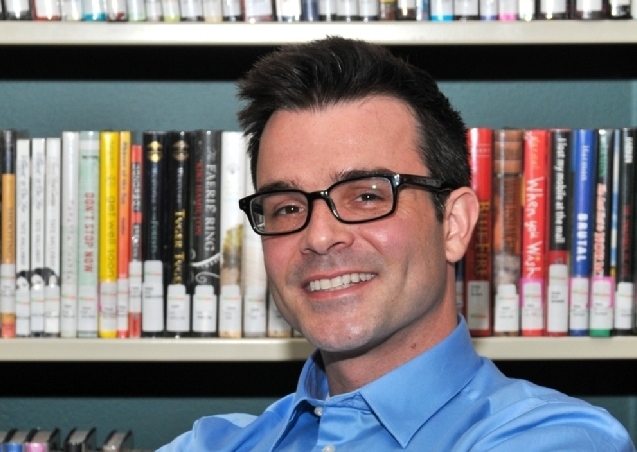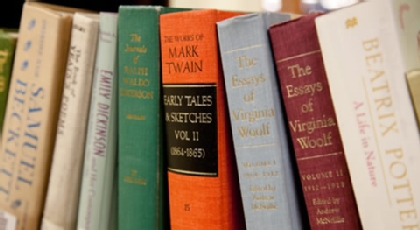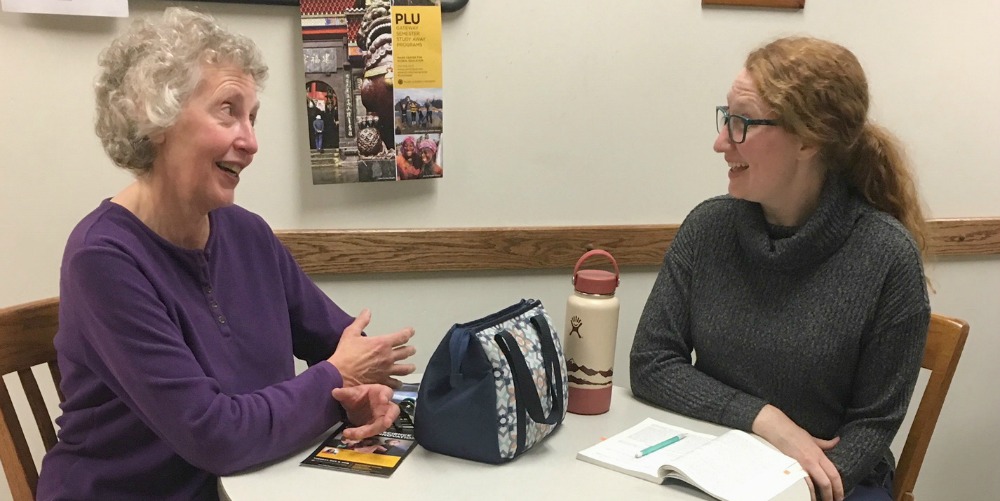Page 265 • (12,572 results in 0.102 seconds)
-

August 3, 2012 Brian Bannon ’97, CEO of the Chicago Public Library System. (Photo provided by Brian Bannon) Alumni Profile: An Unlikely Librarian By Hailey Rile ’12, University Communications Brian Bannon ’97 couldn’t have imagined he would become the head of the country’s second largest library system, the Chicago Public Library. He has always loved books but never saw libraries as his calling, until his late college years. His interest and expertise in the intersection between libraries and
-
constant emergence of police brutality videos, bigoted political rhetoric and action, and an electoral race for the history books, there is a strong need for renewing the belief that this work is important and our self-care is vital for us to continue our care for the world. This weekend’s reminder of our social justice strength and resiliency, hence “no chill,” truly resonated with folks. With lots of food, a stirring panel discussion, thought-provoking conversations and even a little karaoke fun, we
-

graduated its first full class in 2007. Despite the program’s youth, many of the students have won awards, gained national recognition, and published poems, stories, essays and books. Read Previous The impact of eating Read Next Student production offers musical varieties COMMENTS*Note: All comments are moderated If the comments don't appear for you, you might have ad blocker enabled or are currently browsing in a "private" window. LATEST POSTS PLU Director of Athletics and Recreation Mike Snyder named
-
, he taught for 25 years at Pacific Lutheran University in Tacoma, Washington. Browning received his B.A. degree from Oberlin College in 1967 and his M.A. and Ph.D. from the University of Wisconsin-Madison in 1968 and 1975 respectively. He is the author of eight books: The Final Solution and the German Foreign Office (1978), Fateful Months: Essays on the Emergence of the Final Solution (1985), Ordinary Men: Police Battalion 101 and the Final Solution in Poland (1992), The Path to Genocide (1992
-
, he taught for 25 years at Pacific Lutheran University in Tacoma, Washington. Browning received his B.A. degree from Oberlin College in 1967 and his M.A. and Ph.D. from the University of Wisconsin-Madison in 1968 and 1975 respectively. He is the author of eight books: The Final Solution and the German Foreign Office (1978), Fateful Months: Essays on the Emergence of the Final Solution (1985), Ordinary Men: Police Battalion 101 and the Final Solution in Poland (1992), The Path to Genocide (1992
-
, he taught for 25 years at Pacific Lutheran University in Tacoma, Washington. Browning received his B.A. degree from Oberlin College in 1967 and his M.A. and Ph.D. from the University of Wisconsin-Madison in 1968 and 1975 respectively. He is the author of eight books: The Final Solution and the German Foreign Office (1978), Fateful Months: Essays on the Emergence of the Final Solution (1985), Ordinary Men: Police Battalion 101 and the Final Solution in Poland (1992), The Path to Genocide (1992
-
, he taught for 25 years at Pacific Lutheran University in Tacoma, Washington. Browning received his B.A. degree from Oberlin College in 1967 and his M.A. and Ph.D. from the University of Wisconsin-Madison in 1968 and 1975 respectively. He is the author of eight books: The Final Solution and the German Foreign Office (1978), Fateful Months: Essays on the Emergence of the Final Solution (1985), Ordinary Men: Police Battalion 101 and the Final Solution in Poland (1992), The Path to Genocide (1992
-
, he taught for 25 years at Pacific Lutheran University in Tacoma, Washington. Browning received his B.A. degree from Oberlin College in 1967 and his M.A. and Ph.D. from the University of Wisconsin-Madison in 1968 and 1975 respectively. He is the author of eight books: The Final Solution and the German Foreign Office (1978), Fateful Months: Essays on the Emergence of the Final Solution (1985), Ordinary Men: Police Battalion 101 and the Final Solution in Poland (1992), The Path to Genocide (1992
-
the famous autobiographical books. But the true saga of her life has never been fully told. Now, drawing on unpublished manuscripts, letters, diaries, and land and financial records, Caroline Fraser–the editor of the Library of America edition of the Little House series–masterfully fills in the gaps in Wilder’s biography. Revealing the grown-up story behind the most influential childhood epic of pioneer life, she also chronicles Wilder’s tumultuous relationship with her journalist daughter, Rose
-

wandered a long way from our original point of departure – history books, plagues, and zombie apocalypses! Though in a way, we found we had actually been answering our own question in a roundabout (typically historical) way, by following the thought-trail of why we are drawn to the topics we find ourselves researching and teaching about. I guess I’ll just have to ask my Early Modern Europe students why they think the Bubonic Plague of the 14th century still has relevance for them today. Read Previous
Do you have any feedback for us? If so, feel free to use our Feedback Form.


